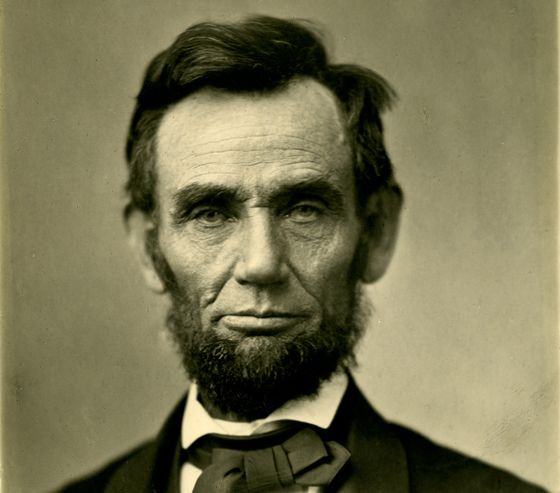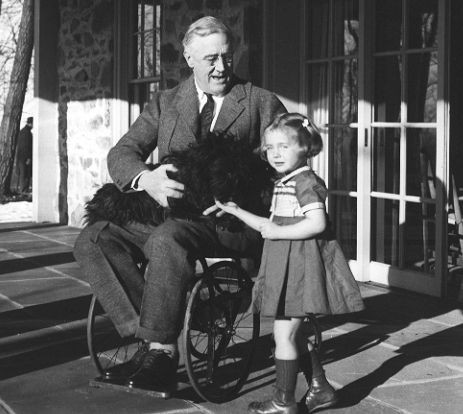6 US Presidents You Didn’t Know Had Chronic Medical Conditions

Whether he was in office at the time or had already completed his tenure, a president’s death and its cause are public information. People know, for example, that William Henry Harrison died of pneumonia just a month after taking office. Less well-known are the illnesses they battled throughout their lives. But these chronic medical conditions show a more human side to a group of men who could have seemed larger than life as they led the country.

Abe Lincoln
The 16th president is most famous for being in the Oval Office during the Civil War, for his assassination in a Washington, D.C. theater and for his enormous stature. But one of his less-well known trademarks were his extreme bouts of melancholy — Abraham Lincoln had depression. The Atlantic explains that Honest Abe “often wept in public and recited maudlin poetry.” He contemplated suicide as a young man “and as he grew older he said he saw the world as hard and grim, full of misery, made that way by fate and the forces of God.”
His mental illness, however, made him the man he was: “With Lincoln we have a man whose depression spurred him, painfully, to examine the core of his soul; whose hard work to stay alive helped him develop crucial skills and capacities, even as his depression lingered hauntingly; and whose inimitable character took great strength from the piercing insights of depression, the creative responses to it, and a spirit of humble determination forged over decades of deep suffering and earnest longing.”
Teddy Roosevelt
This president’s namesake being the soft, cuddly teddy bear belies his tremendous physical strength and endurance. Theodore Roosevelt was known for his athleticism and famously made dangerous treks to Africa and South America to prove his prowess. But this Roosevelt had to work hard for that strength. Biographer Candice Millard writes in her book about the South American expedition to follow the Amazon River, “The River of Doubt: Theodore Roosevelt’s Darkest Journey,” that he was “frail and sickly as a child, and plagued by life-threatening asthma.”
To overcome the condition, the young Roosevelt pushed himself physically until he “slowly broadened his chest, strengthened his arms, and transformed himself into a young man whose body was as strong and sure as his mind.” Throughout his life, he would turn to physical challenges as an outlet to ward off depression.

FDR
Franklin Delano Roosevelt, not the son of Teddy but rather his fifth cousin, was at the helm of the country when Japan attacked Pearl Harbor in Hawaii and when the U.S. subsequently entered World War II. And for those who didn’t know and have never seen the movie “Pearl Harbor” — in which the FDR character painfully stands up out of his wheelchair to prove a point to his advisers about determination — he was afflicted with polio 12 years before taking office. The condition paralyzed his legs, and he went to great lengths to disguise it. According to Men’s Health, the 32nd president “crafted his own wheelchair, which was much less bulky and conspicuous than those of the time. He devised a method of ‘walking’ which included using a cane and leaning on an aide to guide him to and from his car or a podium for a speech.”
JFK
John F. Kennedy, the youngest ever elected president, had an image as a “young, vigorous man,” Men’s Health notes, but sometimes he had back pain so intense that he “couldn't climb a flight of stairs or even put on his own socks.” Kennedy also had Addison’s Disease, an illness of the adrenal glands, which sit just on top of the kidneys. The glands are underproductive, meaning people with the condition have to take daily hormone supplements. According to the Mayo Clinic, those with Addison’s Disease may be fatigued and have pain in different places around the body, lose weight, faint, see their skin darken, crave salt, lose body hair and have changes in mood.
In the case of Kennedy, during his race against Richard Nixon, “Kennedy acknowledged that he’d had an ‘adrenal deficiency’ in the past, but insisted that it was long gone,” Men’s Health says. And the BBC notes that he helped disguise his medical problems with “films of JFK playing football at Martha’s Vineyard.”
Big Bill
One of William Howard Taft’s greatest achievements was being the only man to hold the highest offices in both the executive and judicial branches — he was appointed chief justice of the Supreme Court several years after he left the Oval Office, WhiteHouse.gov notes. “To Taft, the appointment was his greatest honor; he wrote: ‘I don't remember that I ever was President.’" But the president also struggled with obesity throughout his life — he reportedly weighed up to 350 pounds and stood 6 feet tall. The story, however, that the president was so fat that he got stuck in a White House bathtub is probably not true, History.com says.
Presidential biographer Brady Carlson told that publication that the tale did not even emerge until long after Taft finished his presidential terms. In fact, Taft had ordered a special porcelain tub that was “more than seven feet long, 41 inches wide and weighed a ton—literally. A photograph in the February 1909 issue of the journal Engineering Review showed the pond-like presidential bathtub with four men sitting comfortably in-side.” The president ultimately lost about 70 pounds through a dietary change.
John Adams
He is known as a signer of the Declaration of Independence, the first vice president and the second president of a young democracy, but he also likely struggled with mental illness. CNN explains that a study by Duke University psychiatrists explored the health records of the first 37 presidents and found 18 met criteria for different psychiatric disorders. John Adams was among them — he likely suffered bipolar disorder throughout his life, until he died on July 4, 1826, the same day as Thomas Jefferson.
Published by Medicaldaily.com



























